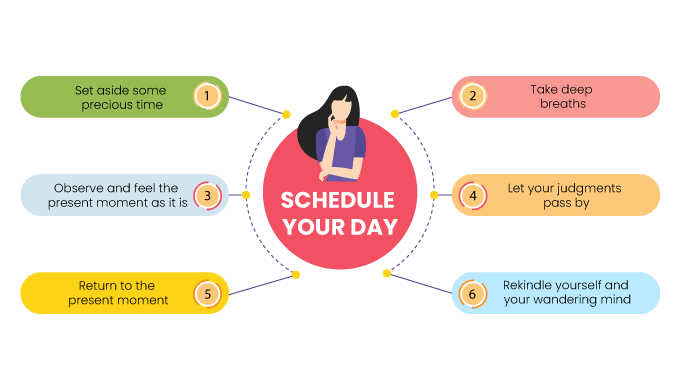In recent years, mindfulness has evolved from a personal well-being practice to a strategic tool for success in the business world. By 2025, many organizations and professionals are embracing mindfulness as a way to enhance focus, decision-making, and overall workplace productivity. Mindfulness, which involves being fully present and aware in the moment without judgment, has proven benefits that extend beyond individual mental health to positively impact business operations and team dynamics.
As businesses face increasing pressures from rapid technological changes, global competition, and complex market demands, mindfulness has emerged as a powerful method for reducing stress, fostering creativity, and improving leadership. Companies that integrate mindfulness into their culture find that it enhances not only employee satisfaction but also overall business performance.
Enhancing Focus and Productivity
Mindfulness helps individuals cut through distractions and stay focused on tasks that truly matter. In a world where digital interruptions are constant, the ability to maintain attention on high-priority work has become a valuable skill.
By practicing mindfulness techniques such as breathing exercises and moment-to-moment awareness, employees can reduce mental clutter, think clearly, and work more efficiently. Businesses benefit from improved productivity as employees become better at prioritizing tasks and managing their time effectively.
Reducing Workplace Stress
Stress and burnout are common challenges in modern workplaces, often leading to reduced morale and higher turnover rates. Mindfulness practices help employees manage stress by calming the mind and reducing overthinking. Techniques like meditation or mindful breaks throughout the day lower cortisol levels and promote emotional balance.
Organizations that encourage mindfulness often report lower absenteeism and a healthier work environment, as employees feel more supported and better equipped to handle workplace pressures.
Improving Decision-Making
Mindfulness allows professionals to approach decision-making with clarity and composure. When individuals are fully present, they are less likely to make impulsive choices or let negative emotions cloud their judgment.
In business, where every decision can have significant consequences, the ability to assess situations calmly and objectively is invaluable. Mindful leaders and employees can weigh options carefully, anticipate outcomes, and make well-informed choices that drive success.
Fostering Better Team Collaboration
A mindful workplace culture encourages empathy, active listening, and open communication among team members. When employees are more present during interactions, they build stronger connections and resolve conflicts more effectively.
Mindfulness practices, such as group meditation or reflective exercises, promote a sense of unity and shared purpose. Teams that collaborate mindfully are often more creative, innovative, and productive because they respect diverse perspectives and work cohesively toward common goals.
Encouraging Creativity and Innovation
Innovation thrives when employees feel mentally free and less constrained by stress or self-doubt. Mindfulness cultivates a state of open awareness, allowing individuals to explore new ideas and solutions without judgment.
Businesses that integrate mindfulness into their culture often report higher levels of creative problem-solving and adaptability. This is especially important in industries where innovation is a key driver of growth and competitiveness.
Building Stronger Leadership Skills
Mindfulness is increasingly recognized as a core leadership competency. Mindful leaders are better at managing their emotions, communicating effectively, and inspiring their teams. By practicing mindfulness, leaders can develop a deeper sense of self-awareness, which helps them understand how their actions and decisions affect others.
Such leaders also foster a positive and inclusive workplace culture, leading to higher employee engagement and trust. Companies with mindful leaders often enjoy stronger performance and greater resilience during times of change or crisis.
Strengthening Employee Well-being
Employee well-being is closely linked to overall business success. When workers are mentally and emotionally balanced, they perform better and are more loyal to their organizations. Mindfulness programs, such as guided meditation sessions or mindfulness workshops, can improve employee morale and job satisfaction.
A workforce that feels valued and supported is less likely to experience burnout, resulting in lower turnover rates and greater overall productivity.
Conclusion
The benefits of mindfulness in business are far-reaching, influencing not only individual performance but also organizational success. By improving focus, reducing stress, and fostering better communication, mindfulness helps create healthier and more effective workplaces.
In 2025, businesses that prioritize mindfulness as part of their strategy are better equipped to adapt to challenges, inspire innovation, and maintain long-term growth. As companies continue to recognize the value of mental clarity and emotional balance, mindfulness will remain a cornerstone of modern business success.



